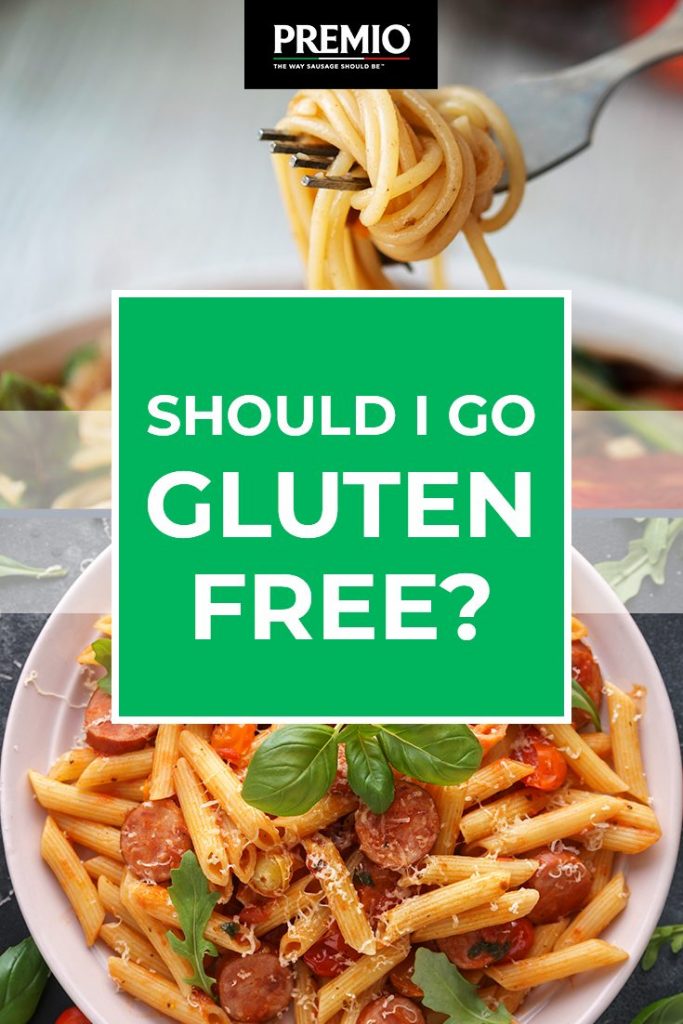Should I Go Gluten-Free?
Gluten-free is one of the most popular trending diets in the United States today. Yet, the number of people who actually need to avoid gluten for health and medical reasons is relatively small. Most people who eliminate gluten from their diet do so because they believe it’s healthier — but is it really?
How Gluten Affects Different People
Diet trends are just that — trends. When celebrities start eating a certain way, their popularity influences the way that others eat. Such is the case with gluten-free.
But what is gluten? Is it bad for you?
Gluten is a protein found in many types of grains, including wheat, rye and barley. It’s what gives bread dough its elastic texture. While eating too many simple carbs like white bread and pasta can be bad for you, most people can include gluten in their diet with no bad side effects. However, there are a few conditions that make eating gluten uncomfortable and even downright dangerous:
- Celiac disease: This condition triggers an autoimmune response when gluten is ingested. The reaction can damage the lining of the small intestine and prevent the body from absorbing key nutrients.
- Dermatitis herpetiformis: This form of celiac disease attacks the skin rather than the small intestine, causing a chronic and very itchy skin rash.
- IBS: Gluten can aggravate the symptoms of irritable bowel syndrome, including nausea and abdominal pain.
- Gluten sensitivity: Also called gluten intolerance, sensitivity to gluten can lead to digestive problems such as gassiness, abdominal pain and diarrhea.
Who Should Go Gluten-Free?
Going gluten-free is a great choice for a relatively small group of people. A diet free from this protein can help individuals manage the symptoms caused by celiac disease, IBS, dermatitis herpetiformis and gluten sensitivities.
For many of us, though, gluten is not the enemy. You might want to rethink this diet if you’re considering it for the following reasons:
- Eating healthier: Carbohydrates are essential to a healthy diet. Going gluten-free without proper preparation can lead to nutritional deficiencies.
- Losing weight: Diet fads that promote losing weight by cutting out an entire food group are often doomed to fail.
- Diagnosing your own symptoms: If you suspect you have a condition that’s causing gluten intolerance, visit a doctor right away. Avoiding gluten before getting tested could yield a false-positive result.
What Foods Should Be Avoided When Going Gluten-Free?
Here are some of the foods you should steer clear of when going gluten-free:
- Grains like wheat, barley and rye
- Most breads, breakfast cereals, wraps and crackers
- Many condiments like soy sauce, salad dressings and marinades
- Most pastries and baked goods
- Beverages like beer or premade coffees
- Many processed foods like lunch meats and canned soups
Gluten-Free Recipes
Going gluten-free and finding new, nutritious meals can be difficult. That’s why our Premio Foods website features tons of easy, gluten-free sausage recipes that are scrumptious, healthy and full of the ingredients you need for a well-rounded diet. Our recipe for Premio Hearty Sausage Salad infuses quinoa with a perfect blend of seasoning and spice. Our Beans and Greens Sausage Ragout is another hearty meal that will fill your belly and leave a smile on your face.
Buy Premio Products at a Store Near You
Premio Food’s top-quality sausage is naturally gluten-free and undeniably delicious. Find your closest Premio supplier by using our handy store locator. With over 40 sausage varieties to choose from, you’ll love incorporating our sausages in your favorite gluten-free recipes.

